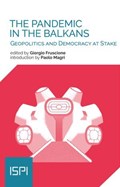One year after reaching Europe, the Covid-19 pandemic has left a profound mark on the Western Balkans. It has exacerbated geopolitical dynamics that had been ongoing for decades. While the EU has continued to be inconclusive, proceeding at a snail's pace with its carrot-and-stick approach, China has seized the opportunity and expanded its footprint. The pandemic has also had major consequences for domestic politics. Local trends can largely be summarised using the terms 'continuity' and 'new hope', with both these notions very much on display in the Balkans and shaping the speed and direction of democratic transitions, which remain far from complete. How has geopolitical competition among the superpowers developed in the Balkans over the last year? What effects has the pandemic had on local democratic standards? Is there room for new hopes in terms of regime change and citizen participation?

